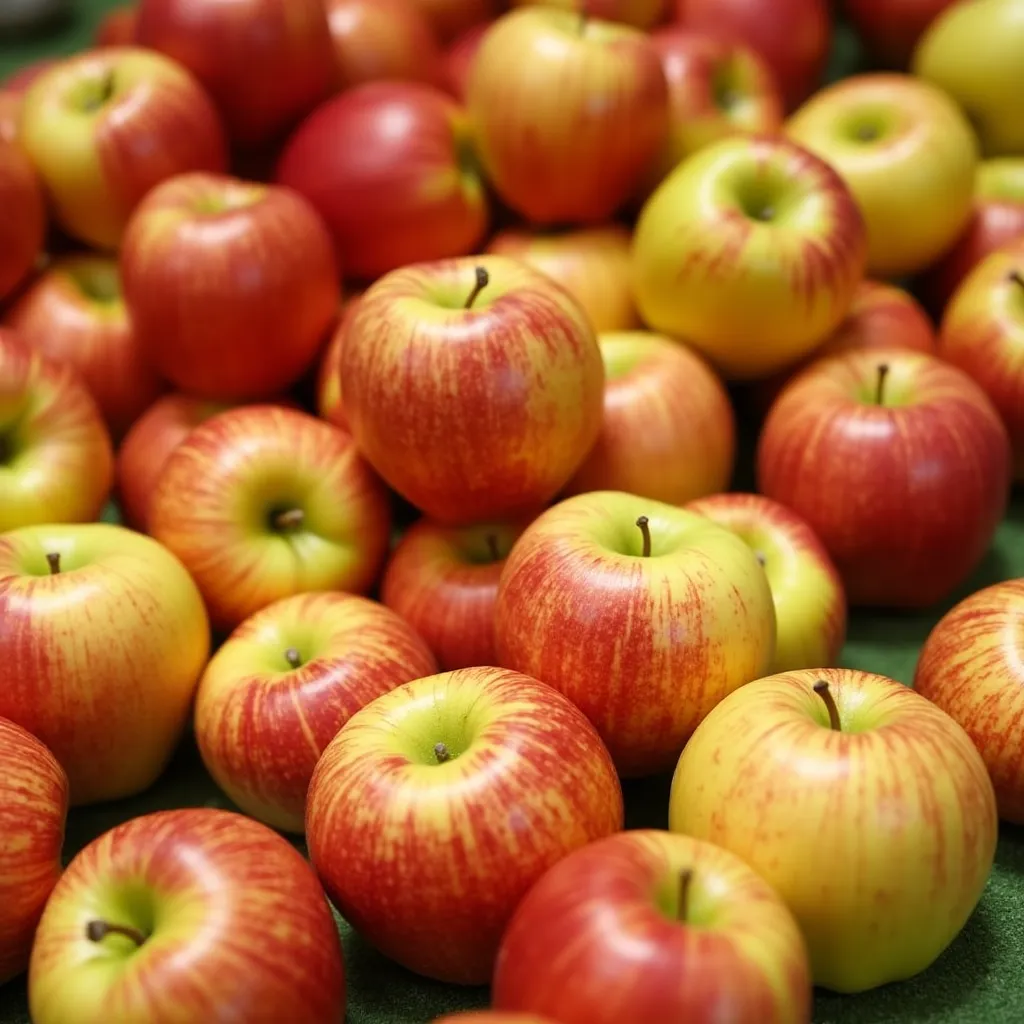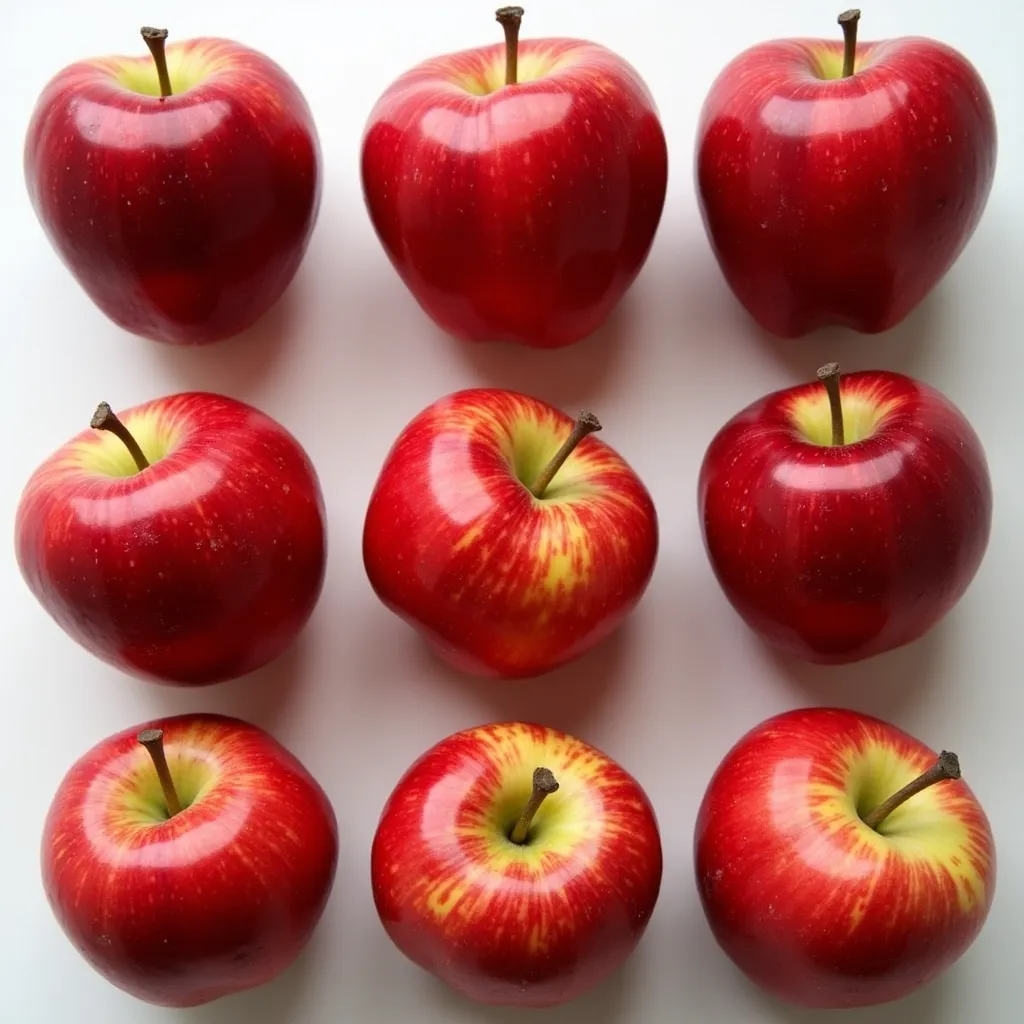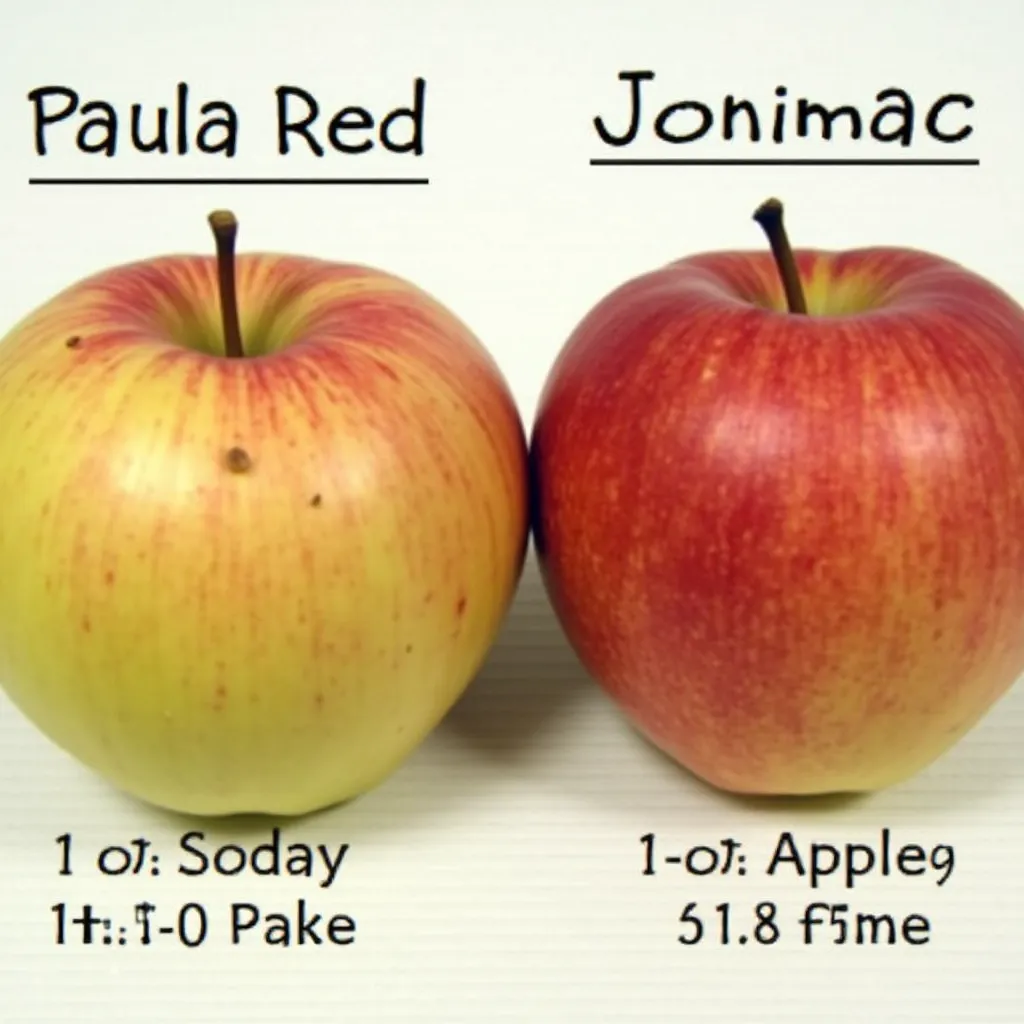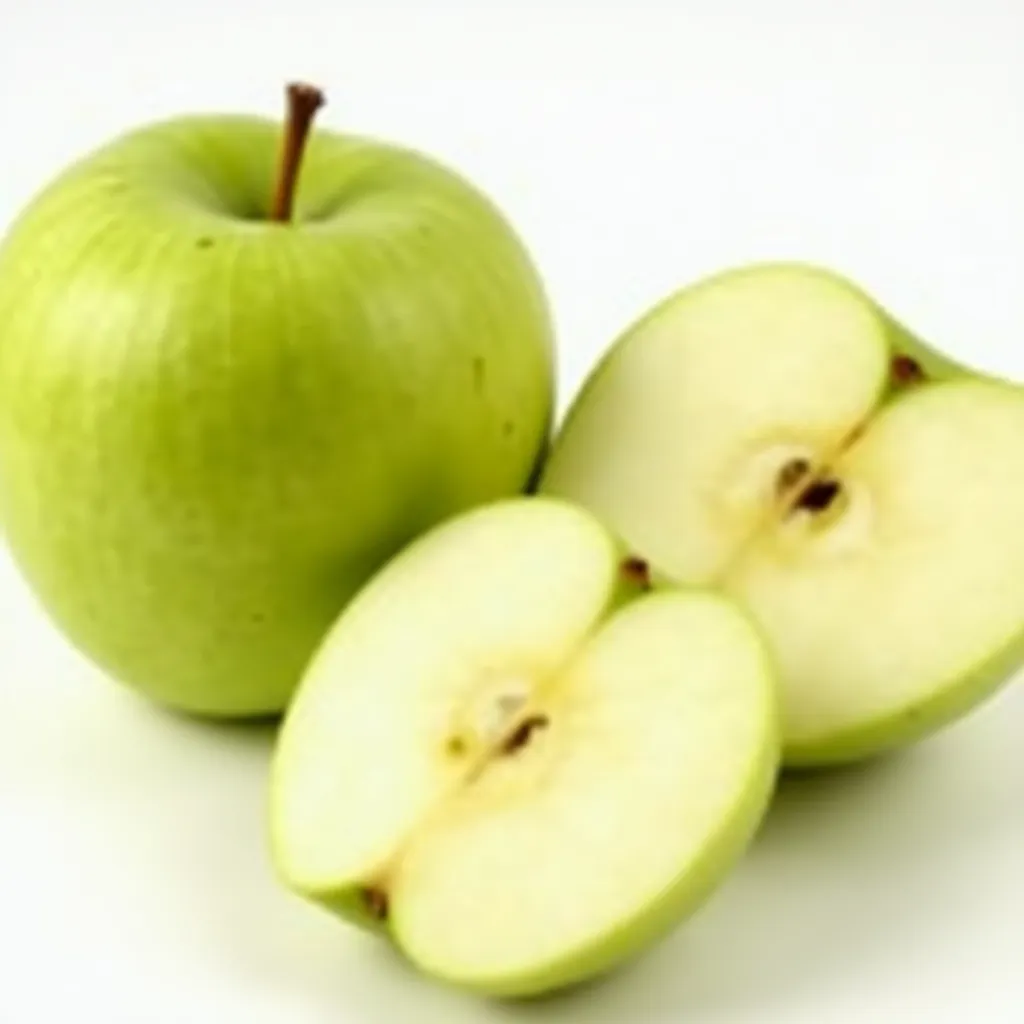· varieties · 5 min read
Understanding Commercial Apple Varieties: From Golden Delicious to Jonagold
A comprehensive guide to popular commercial apple varieties, including Golden Delicious and Jonagold, detailing their flavor profiles, growing requirements, and culinary uses.

Variety Overview
This article delves into the world of commercial apple varieties, focusing on well-known types such as Golden Delicious and Jonagold. These apples, widely available in supermarkets, offer a range of flavors and textures suitable for both fresh eating and cooking. We will explore characteristics ranging from the sweet, balanced flavor and crisp, firm texture to the medium size and red, yellow, and green coloration with solid or striped patterns. From the early to mid-harvest seasons of spring and summer, we’ll cover the growing, storing, and selecting of these popular fruits, providing insights into their history, best uses, and comparisons with similar varieties like Jonathan apples, Yellow Delicious, Cortland apples, Braeburn apples, Cameo apple, Ginger Gold apple, and Cripps Pink. We’ll also touch upon the Stayman Winesap for a broader understanding of apple variety characteristics.
Characteristics
Commercial apples like Golden Delicious and Jonagold are known for their appealing combination of sweet and balanced flavors. Their texture is typically crisp and firm, making them satisfying to bite into. Visually, these apples are medium-sized and display a mix of red, yellow, and green colors. The skin can be either solid in color or exhibit striped patterns, adding to their visual appeal.
Growing Information
These apple varieties are generally considered moderately easy to grow, making them suitable for both home orchards and commercial production. They are harvested in the early to mid-season, typically during the spring and summer months. They exhibit moderate disease resistance, meaning they may require some pest and disease management but are not overly susceptible to major problems. This contrasts with some heirloom varieties that can require more intensive care.
Best Uses
The versatility of apples like Golden Delicious and Jonagold is one of their key attributes. They excel in fresh eating, providing a satisfying crunch and sweetness. Their firm texture holds up well in baking, making them ideal for pies, tarts, and muffins. They are also suitable for cooking, adding a natural sweetness and pleasant texture to sauces, chutneys, and savory dishes. Jonagold apples, for instance, are often praised for their all-purpose utility.
History and Origin
Many popular commercial apple varieties, including some with Golden Delicious and Red Delicious in their lineage, originated in the United States around the mid-20th century, specifically around 1950. These varieties were often bred to enhance specific traits like flavor, texture, and storage life. Understanding this history helps appreciate the development of the apple market. The Jonagold, for example, combines the best characteristics of Jonathan apples and Golden Delicious.
Storage and Handling
With a good storage life, these apples can maintain their quality for a reasonable period when stored properly. Refrigeration is recommended to preserve their crispness and flavor. Storing them in a cool, dark place can extend their usability for several weeks or even months, depending on the specific variety and storage conditions. This good storage life makes them a reliable choice for consumers.
Availability
Commercial apples such as Golden Delicious and Jonagold are typically available during their harvest season in early to mid-spring and summer. However, due to advanced storage techniques and global sourcing, many varieties are available in supermarkets year-round. Ginger Gold, for example, tends to be an earlier variety, while others like Cripps Pink may have a later availability window.
Selection Tips
When selecting these apples, look for firm, unblemished fruits with a vibrant color. The presence of a slight blush or stripe, depending on the variety, can indicate ripeness. Avoid apples with bruises, soft spots, or signs of decay. A crisp texture is a good indicator of freshness and quality. Remember that Yellow Delicious apples often have a naturally softer texture compared to other varieties.
Comparison to Similar Varieties
Golden Delicious is often compared to Yellow Delicious, although they are distinct varieties. Golden Delicious tends to have a firmer texture and more balanced flavor. Jonagold, a cross between Jonathan and Golden Delicious, combines the tartness of Jonathan with the sweetness and keeping qualities of Golden Delicious. Braeburn apples offer a similar crispness with a more complex flavor profile, while Cortland apples are known for their tender flesh and resistance to browning. Cameo and Ginger Gold offer different balances of sweet and tart, while Cripps Pink (also known as Pink Lady) provides a later-season alternative with a distinctive crispness. Stayman Winesap provides a contrast with its more tart flavor and firmer texture, often favored for cooking and cider.
Common Uses
Expanding on their best uses, Golden Delicious and Jonagold apples are excellent choices for a wide range of culinary applications. Their sweet flavor and firm texture make them ideal for snacking and adding to salads. In baking, they retain their shape and contribute moisture and sweetness to pies, cakes, and crisps. For cooking purposes, they can be incorporated into both sweet and savory dishes, such as apple sauces, chutneys, and roasted meats. The versatility of these apples makes them a staple in many kitchens.
Growing Tips
For those interested in growing these apples, choosing a site with well-drained soil and ample sunlight is essential. While they have moderate disease resistance, implementing a regular pest and disease management program can help ensure a healthy crop. Pruning and thinning the trees can also improve fruit quality and yield. Consulting local agricultural extension services can provide tailored advice for your specific region and growing conditions. Understanding that these are moderately challenging to grow helps set realistic expectations.


